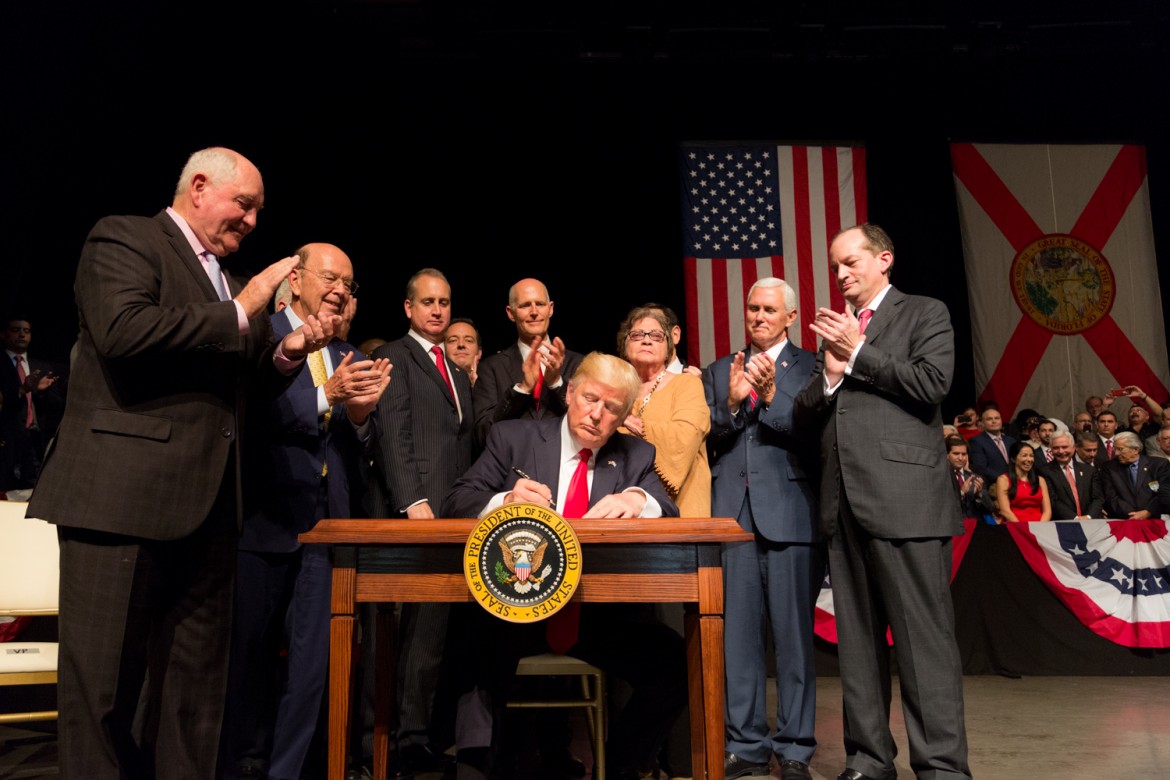Reportage
The real cost of Trump’s return to Cold War Cuba policy
In Havana, conversations in the streets have turned to Donald Trump and whether his policies — unpopular even among Americans — will cut off vital sources of income.

More than $130 billion is what Cuba has lost because of 50 years of economic, financial and commercial blockade, unilaterally applied by the United States since the early 1960s. Once again this year, Havana is preparing to submit a motion to the United Nations condemning this embargo. But this time, the dangerous climate is more reminiscent of the Cold War years.
Donald Trump’s statements on Friday — to keep the embargo and block the activities of the U.S. Embassy in Cuba — are like a strong wind against the flicker of hope, initiated by President Obama, that the two countries might ease tensions.
The U.S. State Department has confirmed that it will not grant visas to Havana and that Cubans wanting to travel to the United States for family reunification, as well as for tourism or commercial purposes, will have to apply for a visa in a third country. It also announced that all interviews scheduled for unsolicited visa requests are canceled; the $160 fees will not be reimbursed. In fact, for average Cubans it will be virtually impossible to come up with the money for a visa to the U.S., which isn’t even a guaranteed bet.
At the same time, the White House closed the door to U.S. entrepreneurs interested in engaging in economic or commercial activities on the island. In fact, the Cuban embassy in Washington reported that the 15 diplomats expelled after the alleged “acoustic attacks” in Cuba against U.S. diplomats were all involved in the commercial sector. According to the Reuters news agency, U.S. companies interested in doing business in Cuba first of all must get in contact with the Cuban embassy.
The purpose of these moves is more than obvious. Emigration to the U.S., home to the largest Cuban community abroad (almost two million people), as well as family and especially economic links (remittances) from relatives on the other side of the Strait of Florida are one of the main “pressure valves” for tens of thousands of Cubans, not only to escape from economic difficulties and look for more profitable work but also to seek a new life.
According to the agreements established during President Bill Clinton’s tenure, the U.S. pledged to grant 20,000 annual visas to Cuban citizens as a measure to limit illegal immigration. Those thousands of Cubans who gave themselves to the sea on unworthy boats to arrive in Florida were, upon landing, protected by a rule known as “wet foot, dry foot,” granting them assistance and, after just one year, a residence permit.
The Obama administration canceled special concessions to illegal Cuban immigrants last January as part of the normalization of relations and to start curbing the dangerous crossover attempts.
The result is that today, both illegal and legal immigration are blocked. At the same time, the Trump administration has cautioned against U.S. citizens traveling to Cuba, ostensibly because of safety risks, and has frozen diplomatic relations. This has made it extremely difficult for U.S. entrepreneurs to do business with Cuba.
According to an (anonymous) State Department employee, Trump “sealed the Cuban pressure cooker,” by closing down the main “relief valves”: emigration to the U.S., remittances, tourism and U.S. investment. These drastic measures are being implemented at a time of great difficulty for the Cuban government, after the island was severely impacted by hurricane Irma. Tourism and foreign investment are considered an essential lever to revive an economy that was in recession last year.
In essence, then, we’re back to the era of strict embargo, clearly aimed at “overthrowing the Castros.” A bankrupt regime change policy — as Obama called it — which the majority of Americans oppose. Last year, American tourism to Cuba grew by 70 percent. And the forecasts for this year were rosy before the spy story of the “acoustic attacks” against U.S. diplomats came out.
Last Tuesday, after the announcement of the suspension of the American Embassy’s activities, anxiety and despair were evident among the hundreds of Cubans gathered in the square adjacent to the diplomatic headquarters to ask for news. Tens of thousands of families in the island depend on remittances from their Cuban-American relatives to make ends meet. Fears that this financial lifeline may be cut off is the topic of the day in street conversations among neighbors.
Originally published at https://ilmanifesto.it/dal-costo-salato-del-bloqueo-al-cappio-di-trump/ on 2017-10-10
